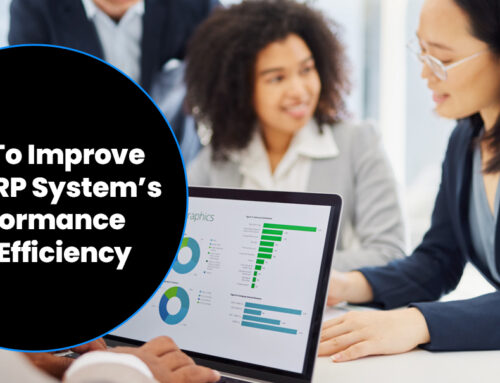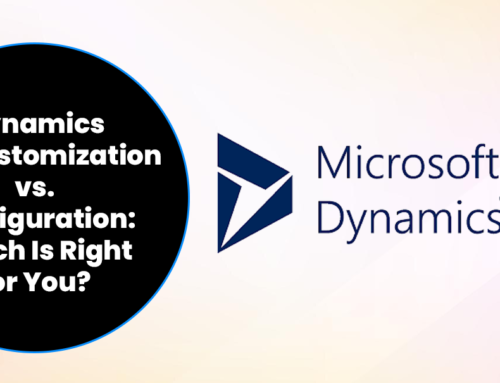
Enterprise resource planning (ERP) software comes with many complexities — complexities that demand hiring ERP professionals. More specifically the hiring of an ERP project manager to ensure that an organization sees a maximum benefit from their investment.
These enterprise software platforms serve as the core of a company’s digital operations. Each platform features a centralized database that accommodates data from a variety of departments and divisions. An ERP platform may include the following modules.
- Human Resources (HR);
- Accounting and Finance;
- Supply Chain Management;
- Logistics;
- Retail and eCommerce;
- Sales and Marketing;
- Inventory Management; and
- Production and Engineering.
Many ERP systems include customer relationship management (CRM) functionalities too.
The combined ERP database offers an eagle’s eye view of a company’s operations. This comes in addition to allowing for the collection of metrics and analytics. The data is centralized in a way that allows for comprehensive analysis and reporting capabilities. In turn, ERP users can easily gather the information they need to make data-driven decisions.
With so many mission-critical features and functionalities involved, an ERP project manager plays a vital and indispensable role. But this is really just the beginning because an ERP project manager facilitates a variety of interactions with an organization’s enterprise software.
What Does an ERP Project Manager Do?
An ERP project manager is tasked with overseeing all aspects of an enterprise software implementation and deployment. Other duties can include:
- Developing plans for maintenance and updates, with an eye toward minimizing disruptions and downtime.
- Providing training to new users, including new user orientation and the establishment of roles and permissions that allow a user to perform their duties, without leading to unnecessary data exposure.
- Implementing integrations with third-party APIs to expand the enterprise software system’s connections with third-party platforms. These connections translate into a broader range of capabilities.
- Establishing timelines for platform maintenance and updates. This includes routine maintenance and security updates to address vulnerabilities. Continued monitoring allows for the prompt identification of a problem and a timely resolution.
ERP project managers may oversee cloud-based enterprise software systems or on-premise ERP platforms. Cloud ERP platforms are currently the more popular of the two configurations due to factors such as reduced cost and strong scalability.
A larger proportion of ERP project managers have opted to specialize in cloud-based ERP deployments due to the greater popularity of these systems.
An ERP project manager will typically report to a company’s leadership team, including the COO, CTO, and CEO. This relationship with the C-suite can be extremely beneficial because the ERP project manager can offer useful insight into the enterprise software platform’s many capabilities. With this information in mind, executives are empowered to leverage data in a way that drives smart data-driven decisions at the corporate level.
Considerations When Hiring an ERP Project Manager
It’s time to begin the hiring process when you arrive at a point where there exists little doubt about the value of an ERP project manager.
The term “project manager” generally suggests a short-term engagement but these tech professionals are typically hired on a more permanent long-term basis. After all, your enterprise software system won’t be eliminated in the near future. Your ERP project manager will dwell at the heart of the software system’s life cycle.
An ideal candidate will be well-versed in the intricacies of your enterprise resource planning software platform, whether it is made by Oracle, SAP, NetSuite or another ERP vendor.
Strong leadership and analytical skills are also essential for success as an ERP project manager. A good leader will have the ability to communicate effectively with platform users, department heads, and company leaders, among others. Strong communication is critical for answering questions, alleviating concerns, and guiding these individuals as they navigate ERP solutions.
Hiring an ERP Project Manager Who is Skilled in Planning
The most successful ERP project managers are adept at planning. A detailed and comprehensive plan is essential for success because these enterprise platforms require continued maintenance and updates. So what does a good plan look like?
- Stakeholder Meetings – The project manager identifies and meets with the stakeholders who will be affected by the project and its outcome. In the case of an enterprise resource planning platform, stakeholders will include an organization’s executives and others with similar interests.
- Identifying Goals and Objectives – A skilled project manager will take time to articulate the goals and objectives that will be achieved along the project timeline.
- Identifying Needed Resources – Resource planning is critical for success. Those resources may be human, tangible, or service-based. Whatever the case may be, a skilled ERP project manager will be capable of identifying and procuring the necessary resources in a timely manner.
- Task Delegation – The overworked man tries to take on the world alone. The smart man delegates. An experienced ERP project manager will delegate tasks in an even, balanced way.
- Updates and Reports – A reputable, responsible ERP project manager will be keen to update stakeholders on a regular basis. Detailed, insightful status reports are critical for instilling confidence. Otherwise, an organization’s leaders may lose faith in a project. They may be left to wonder if the project manager has encountered roadblocks or obstacles that are affecting the integrity of the organization’s ERP implementation and deployment. A lack of confidence can spur stakeholders to withdraw their backing and support for a project. This can be downright disastrous for an ERP implementation.
An increasing number of organizations are now turning to IT staffing service providers in their search to find a skilled ERP project manager. This strategy can save time, money, and resources, especially when you consider the highly-competitive hiring environment. An IT staffing service provider will typically have access to top talent, allowing for a prompt placement.
At Cox-Little, one of our specialties is guiding clients through a successful ERP implementation process. Enterprise software carries many complexities that are difficult to navigate. This is where our experts are available to help you find success.
The Cox-Little strategy maximizes your organization’s chances of seeing a smooth and successful ERP rollout. Contact the Cox-Little team today if you’re ready to begin the enterprise software implementation process with a top ERP project maanger.





